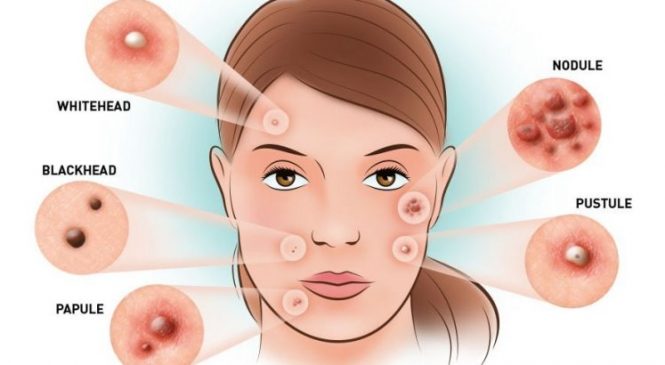Myths And Realities Regarding Acne: Debunking Common Misconceptions
Myths And Realities Regarding Acne: Debunking Common Misconceptions
Blog Article
Developed By-McConnell Watkins
You could assume that delighting in delicious chocolate or oily foods is the source of your acne, but that's just among lots of myths swirling around this common skin condition. In fact, acne primarily stems from blocked hair roots, not your last dessert. Misunderstandings like these can lead you to take on ineffective skin care practices that may even intensify your circumstance. As you navigate the facts behind acne, you'll discover understandings that could transform your technique to skin care and help you accomplish clearer skin. So, what actually lies underneath the surface?
Common Myths About Acne
When it comes to acne, many people believe in common myths that can cause confusion and irritation. One common myth is that consuming delicious chocolate or greasy foods triggers acne. While diet plan can affect skin health, the direct link between certain foods and acne isn't as clear-cut as many believe.
Another usual mistaken belief is that you should scrub your face strongly to clear up outbreaks. In truth, hostile rubbing can aggravate your skin and get worse acne.
You could also believe that acne only affects teens, however adults can experience it also, usually because of hormonal modifications or anxiety. Some individuals assume that sun tanning can improve acne, yet sun direct exposure can in fact bring about skin damage and aggravate breakouts in the future.
Finally, many believe that utilizing harsh products will certainly get rid of acne swiftly. Nevertheless, these items can strip your skin of its all-natural oils, bring about raised irritation and even more breakouts.
Scientific Facts Behind Acne
Comprehending the clinical truths behind acne can encourage you to tackle this usual skin condition more effectively.
Acne happens when hair roots end up being clogged with oil, dead skin cells, and microorganisms. This process usually begins with an overflow of sebum, the oil your skin normally creates. Hormonal changes, specifically during the age of puberty or menstruation, can trigger this excess oil.
Bacteria referred to as Propionibacterium acnes grow in these clogged pores, bring about swelling. When your immune system reacts, it can create inflammation and swelling, causing those bothersome pimples or cysts.
Genetics likewise contribute; if your parents had acne, you might be more prone to it.
Diet and stress levels can influence acne as well, however study is still advancing in these locations. While indulging in greasy foods won't straight cause breakouts, a balanced diet can support your skin health.
Likewise, managing tension can reduce hormonal variations that might worsen acne.
Tips for Taking Care Of Acne
Managing acne effectively calls for a mix of everyday skincare habits and way of living modifications. Beginning by developing a constant skin care regimen. Cleanse your face two times a day with a mild, non-comedogenic cleanser to remove dust and excess oil. please click the next website page scrubbing too hard, as this can irritate your skin and aggravate acne.
Next, integrate products having salicylic acid or benzoyl peroxide to assist stop breakouts. Constantly follow up with a lightweight, oil-free moisturizer to maintain your skin hydrated. Don't fail to remember sun block; opt for non-comedogenic choices to safeguard your skin from UV damages without blocking pores.
Past skin care, take note of your diet regimen. Restriction sugary and oily foods, and focus on fruits, vegetables, and entire grains. Staying moisturized is important, so drink plenty of water throughout the day.
In addition, take care of stress and anxiety through activities like yoga, reflection, or exercise, as tension can cause breakouts.
Finally, avoid choosing or popping acnes. simply click the up coming site can cause scarring and further inflammation. If your acne lingers, consult a skin doctor for individualized treatment alternatives.
Conclusion
Finally, it's vital to separate fact from fiction when it concerns acne. By exposing common misconceptions, you can better comprehend your skin and make informed options for your skin care regimen. So, why remain to rely on outdated ideas when the fact can equip you? Embrace much healthier habits, focus on mild cleaning, and bear in mind that managing acne is a journey. With the ideal expertise, you're one step closer to more clear, much healthier skin.
